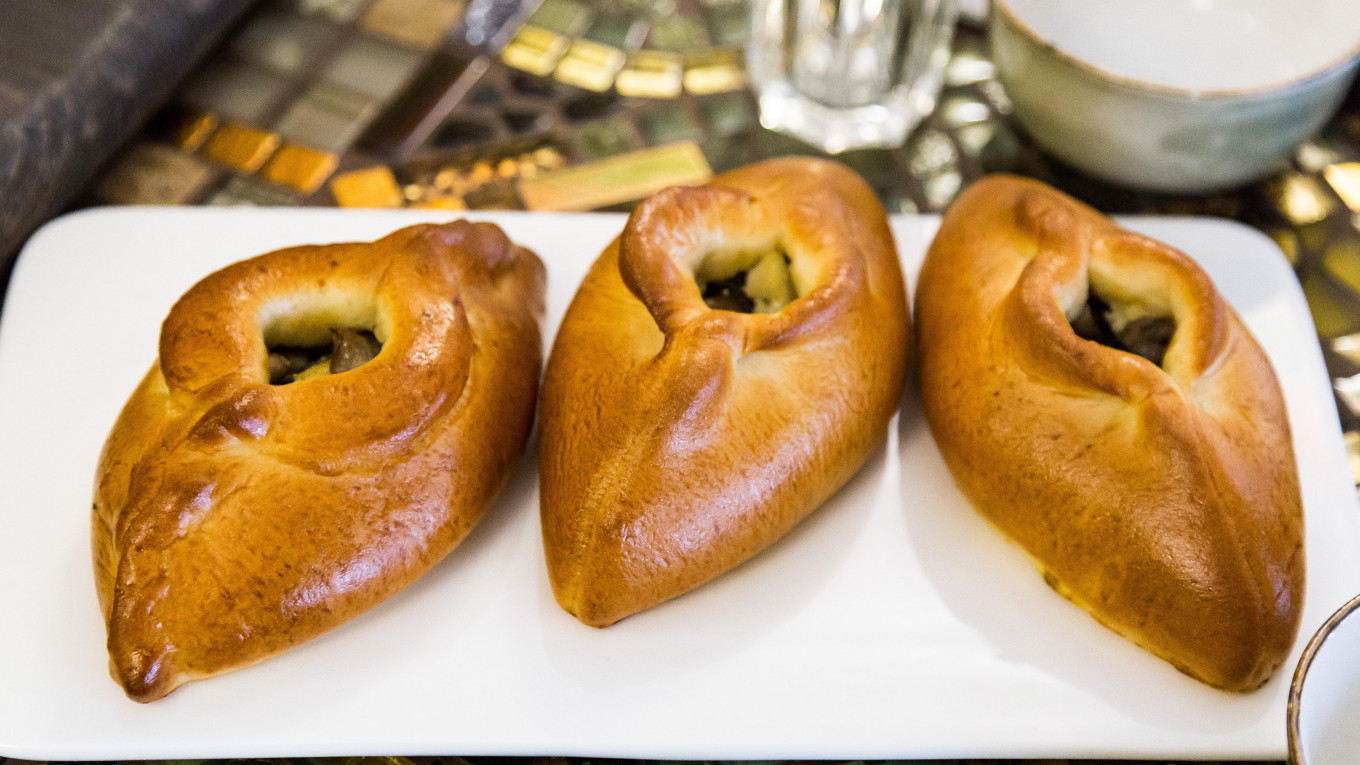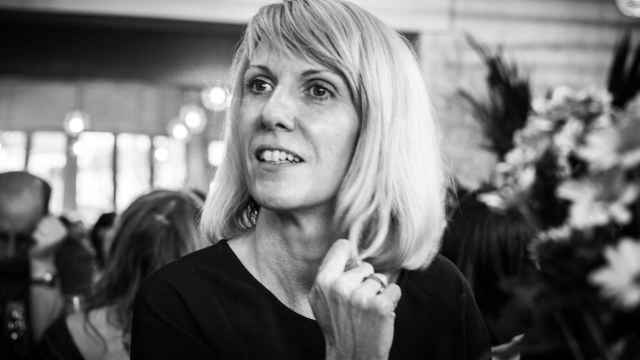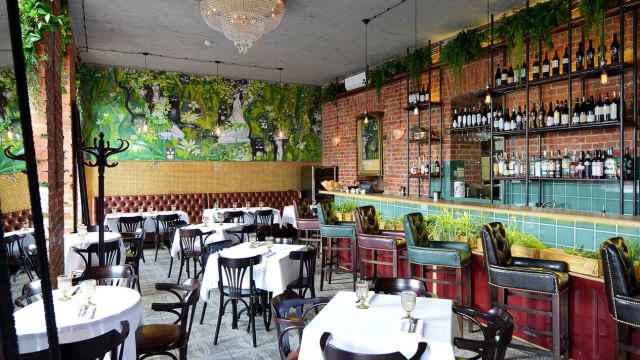Bread: the foundation of our civilizations, the root of our prayers. Even “mad monk” Grigory Rasputin recognized its importance, warning the tsar what could happen if the country’s supply of crucial ingredients (flour, butter, sugar) were to dwindle. The mad monk was right.
Whether practical or poetic, there's no substitute for bread, despite what dieters may say. Khleb Nasushny, Russia's answer to Le Pain Quotidien, is there to weaken the wills of those who continue to pretend.
But how many even daily consumers know the history of their sandwich staple? A group of TMT Club–goers wanted to improve this statistic.
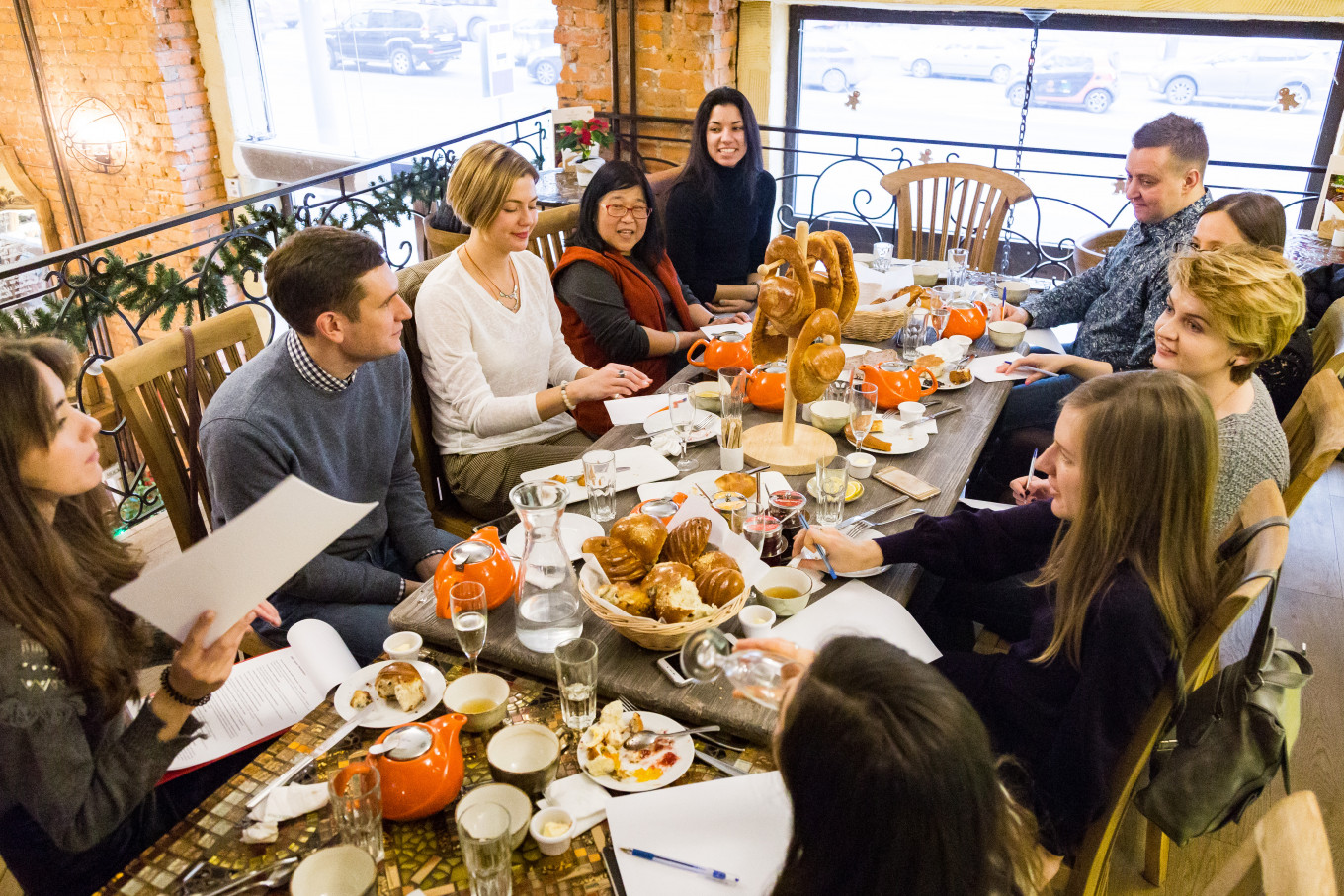
Khleb Nasushny at 17 Tverskaya Ulitsa, not far from where Maxim Philippov’s flagship bakery once stood, leads the chain's way to finding its historical roots. It pioneers the cafe’s plans to resurrect the name, decor and recipes that made the legend it once was. Other branches will soon follow suit.
Back in the day, Philippov was the everyman’s baker: from the tsar's family to government officials to the local plumber. Reasonable prices and quality classics, particularly the popular kalatch loaf, earned him a name for himself; his business savvy earned that name longevity.
Tenacious and enterprising, Philippov saw his company through a destructive fire and a moment of near disaster. As the story goes, an official (a regular customer) was working his way through a familiar treat: saika, a dessert bun. Finding an unwelcome ingredient within, he shrieked, “Philippov! What on earth is this doing in here?”
The baker rushed over; indeed, a cockroach had somehow beenbaked into the dough. Mustering his finest poker face, Philippov assured the man, “That’s just a raisin! It’s a new recipe, is all!” He then bit a chunk off to prove it before racing back to the kitchen to dumpraisins into the remaining batter. The innovation that arose would join kalatch as one of the baker’s signature recipes.
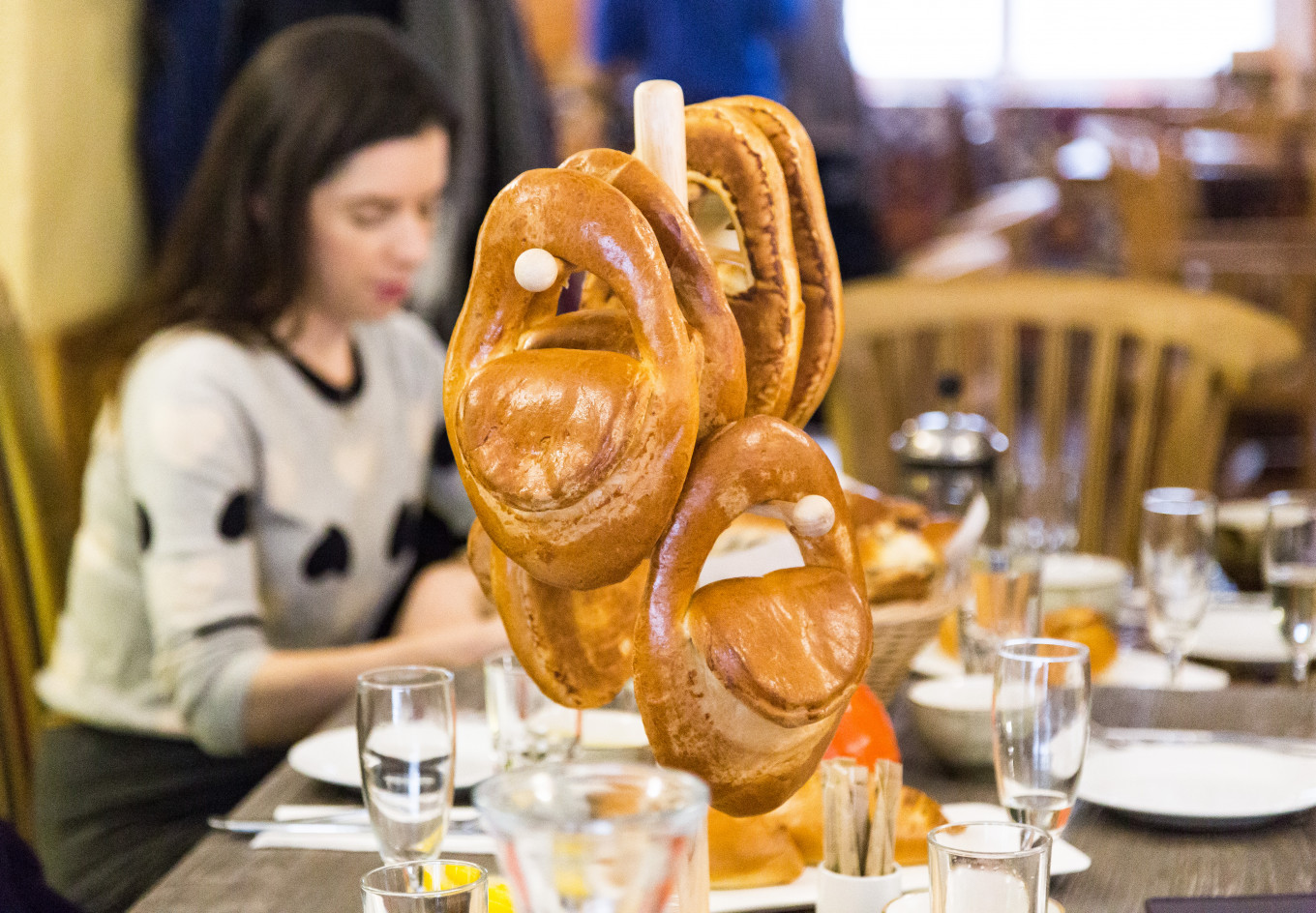
The group got to see and taste the treats as we learned about them. They found Khleb’s saika lived up to the hype. A soft bun with a crunchy nut topping, the reinterpretation is an improvement on a childhood favorite (and also likely an improvement on the original).
Other favorites include Borodinsky, made in the traditional way with honey (which modern recipes tend to forget); nalivashki, similar to pie-like pirozhki in appearance, but with warm fillings of egg, cheese and green onion; and gubniki, lip-shaped and mushroom-stuffed.
Kalatch is probably more interesting to view than to eat, asit is practically indistinguishable from basic white bread — although it is elevated by the cafe’s homemade jams. Everything was washed down with ginger tea and Ivan Chai (willow herb tea), both of which are also homemade.
I've long appreciated Le Pain Quotidien and Khleb Nasushny for consistently bringing an inviting atmosphere, tasteful music and international menu to cities all around the world. Philippov Bakery retains all of that, contributing to it the story of a Russian artisan — a former serf, earning his place in what was then a German-dominated craft. Russian bread hasn't been the same since.
You can sign up for The Moscow Times' club events here. Or follow us on Facebook!
A Message from The Moscow Times:
Dear readers,
We are facing unprecedented challenges. Russia's Prosecutor General's Office has designated The Moscow Times as an "undesirable" organization, criminalizing our work and putting our staff at risk of prosecution. This follows our earlier unjust labeling as a "foreign agent."
These actions are direct attempts to silence independent journalism in Russia. The authorities claim our work "discredits the decisions of the Russian leadership." We see things differently: we strive to provide accurate, unbiased reporting on Russia.
We, the journalists of The Moscow Times, refuse to be silenced. But to continue our work, we need your help.
Your support, no matter how small, makes a world of difference. If you can, please support us monthly starting from just $2. It's quick to set up, and every contribution makes a significant impact.
By supporting The Moscow Times, you're defending open, independent journalism in the face of repression. Thank you for standing with us.
Remind me later.


